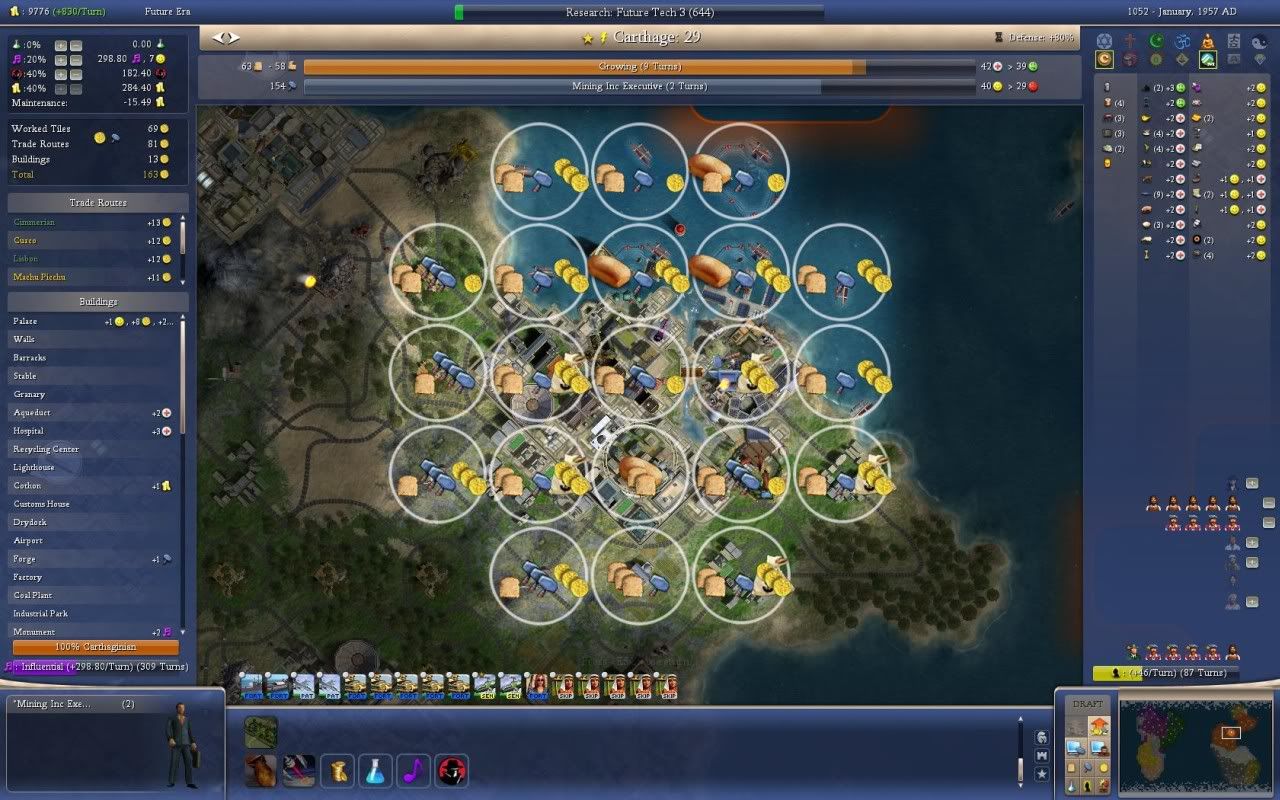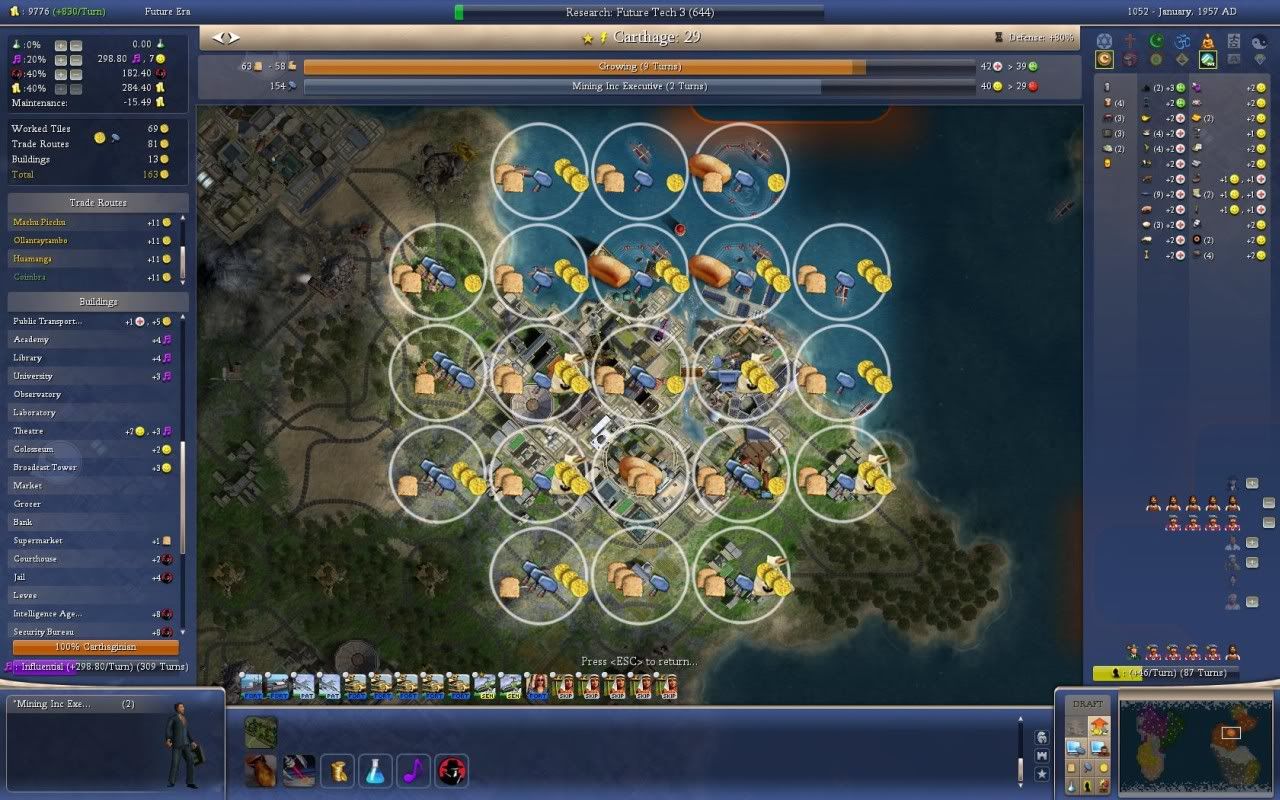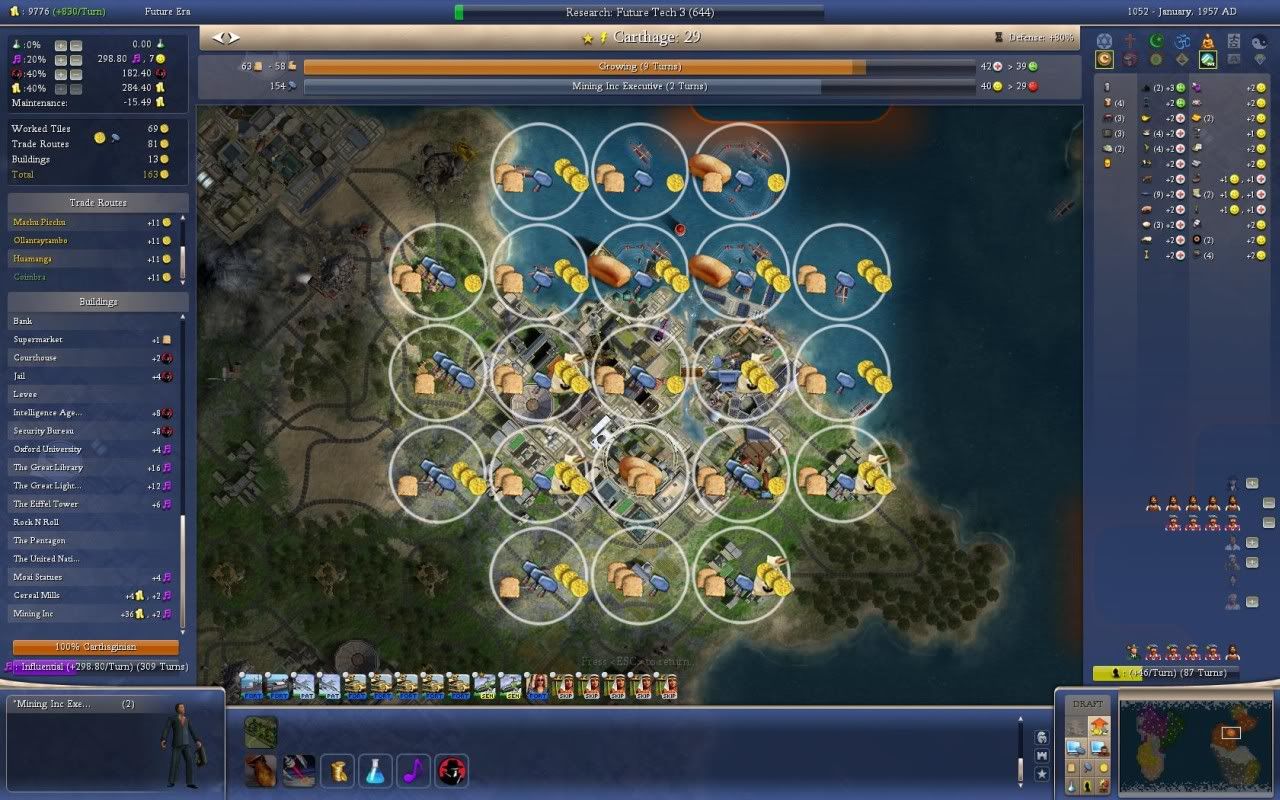We roll nice starts... It's competitive play...
This is the same thing as a guy who hits home runs off a batting cage pitching machine saying he could hit a Randy Johnson fastball for a home run just as well as Albert Puhols.
Both you and Puhols are holding a bat, but you're not playing the same game.
Edit: that came off kinda snarky.
What I'm getting at is that all of the games played in the Strategy + Tips forum are rolled with basic, take it as it come, starts - and advantageous starts are mostly re-rolled to get something more difficult. Where else would someone re-roll a start on Deity because there's gold in the BFC? Masochists!
Giving advice and/or bragging about 1AD Lib every game at best makes people discount your opinion, and at worst think that you are in essence - cheating.
Play some of the posted games in this forum, try a few of the immorlal u games. If you're doing something radical that no one around here is (which probably includes some of the best civ players on the planet) we'd love to learn.
Otherwise, posting tips related to real random game conditions are what's relevant (This is why there are so many "it depends" posts around here)
Start playing maps that you'll lose. It's the only way to get better.
I'd rather bunt a single off Johnson than have a home run off a pitchng machine.


 ; but it's always worth building if you're not giving up something critical.
; but it's always worth building if you're not giving up something critical.

